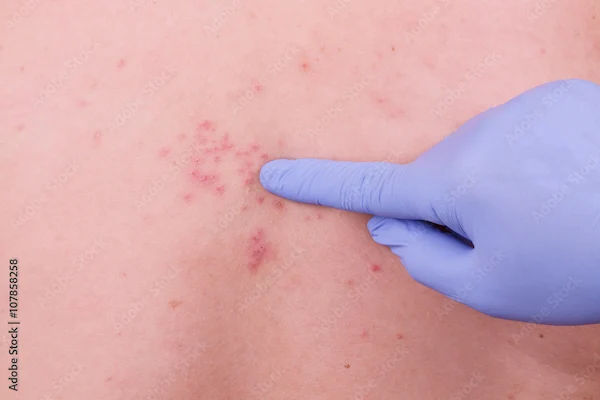Shingles Treatment Options and Insights
know about the shingles, common symptoms, causes, treatment options and management of shingles and more.

Written by Dr. Siri Nallapu
Reviewed by Dr. Rohinipriyanka Pondugula MBBS
Last updated on 20th Aug, 2025

Introduction
Shingles, also known as herpes zoster, is a painful skin rash caused by the same virus that causes chickenpox—the varicella-zoster virus. If you’ve had chickenpox in the past, the virus stays dormant in your body and can reactivate later in life as shingles. While it’s not life-threatening, shingles can be extremely uncomfortable and sometimes lead to complications.
Effective treatments are available to help manage symptoms, speed up recovery, and reduce complications. In this article, we’ll explore shingles treatment options, home care tips, and preventive measures to help you and your loved ones navigate this condition with confidence.
Understanding Shingles: Symptoms and Causes
Common Symptoms
Shingles typically affects one side of the body and appears as a painful, blistering rash. Other symptoms include:
- Burning, tingling, or itching before the rash appears
- Fluid-filled blisters that crust over in 7–10 days
- Fever, headache, and fatigue
- Sensitivity to touch
Consult Dermatologist for Personalised Advice
What Causes Shingles?
After recovering from chickenpox, the virus remains inactive in nerve tissues. Years later, factors like stress, weakened immunity, or aging can reactivate it as shingles. Those over 50, people with chronic illnesses, or those with weakened immune systems are at higher risk.
Shingles Treatment Options
Early treatment can help reduce pain, speed up healing, and lower the risk of complications like postherpetic neuralgia (PHN) which is a condition where pain lingers long after the rash disappears.
1. Antiviral Medications
These are the most effective when taken within 72 hours of the rash appearing. Common antiviral drugs include:
- Acyclovir
- Valacyclovir
- Famciclovir
These medications help:
- Shorten the duration of the rash
- Reduce pain severity
- Lower the risk of complications
2. Pain Management
Shingles pain can be intense. Your doctor may recommend:
- Over-the-counter pain relievers (e.g., ibuprofen, acetaminophen)
- Prescription painkillers (e.g., gabapentin, pregabalin for nerve pain)
- Topical treatments (e.g., lidocaine patches or numbing creams)
3. Home Care and Natural Remedies
While medications are essential, these self-care tips can help ease discomfort:
- Keep the rash clean and dry to prevent infection.
- Apply cool compresses to soothe itching and pain.
- Wear loose, soft clothing to avoid irritation.
- Use calamine lotion or colloidal oatmeal baths for relief.
4. Managing Complications
- If shingles affect the eyes (ophthalmic shingles) or leads to severe pain, consult a doctor immediately to prevent vision loss or chronic nerve pain.
Preventing Shingles: Vaccination is Key
The best way to prevent shingles is through vaccination. Two vaccines are available:
1. Shingrix (Recommended) – A two-dose vaccine, highly effective (over 90%) in preventing shingles and PHN. Recommended for adults 50+ and those with weakened immunity.
2. Zostavax (Older Vaccine) – Less commonly used now but was previously given as a single dose.
Who Should Get Vaccinated?
- - Adults 50 years and older
- - Those who’ve had shingles before (to prevent recurrence)
- - People with chronic conditions (e.g., diabetes, heart disease)
If you're unsure about vaccination, consult your doctor to determine the best option for you.
When to See a Doctor?
Seek medical attention if:
- The rash is near your eyes (risk of vision problems).
- You have a weakened immune system (e.g., due to cancer or HIV).
- The pain is severe or persists after the rash heals.
- Signs of infection (pus, swelling, fever).
Early treatment can make a big difference in recovery!
Final Thoughts: Living Well After Shingles
Shingles can be painful and disruptive, identifying the cause and knowing the symptoms along with the prompt treatment options, and proper care, most people recover fully. If you’re over 50 or at risk, consider vaccination to prevent future outbreaks.
Consult Dermatologist for Personalised Advice
Consult Dermatologist for Personalised Advice
Dr. Mayuri Jain
Dermatologist
11 Years • MBBS, MD Dermatology , Venereology & Leprosy
Delhi
Dr Mayuri Jain Clinic, Delhi
Dr. Kavitha Killaparthy
Dermatologist
23 Years • MBBS,DIPLOMA(DERMATOLOGY,VENEREOLOGY,LEPROSY)
Hyderabad
JDS Skin & Hair Clinic, Hyderabad

Dr Ekansh Shekhar
Dermatologist
10 Years • MBBS MD
Lucknow
Apollo Clinic Hazratganj, Lucknow
Dr.j Girishma
Dermatologist
6 Years • MBBS MD DERMATOLOGY
Bengaluru
Apollo Medical Center, Marathahalli, Bengaluru
Dr. Praveen Kumar
Dermatologist
5 Years • MBBS, MD DVL
Yenugonda
SVS Hospital ., Yenugonda
Consult Dermatologist for Personalised Advice
Dr. Mayuri Jain
Dermatologist
11 Years • MBBS, MD Dermatology , Venereology & Leprosy
Delhi
Dr Mayuri Jain Clinic, Delhi
Dr. Kavitha Killaparthy
Dermatologist
23 Years • MBBS,DIPLOMA(DERMATOLOGY,VENEREOLOGY,LEPROSY)
Hyderabad
JDS Skin & Hair Clinic, Hyderabad

Dr Ekansh Shekhar
Dermatologist
10 Years • MBBS MD
Lucknow
Apollo Clinic Hazratganj, Lucknow
Dr.j Girishma
Dermatologist
6 Years • MBBS MD DERMATOLOGY
Bengaluru
Apollo Medical Center, Marathahalli, Bengaluru
Dr. Praveen Kumar
Dermatologist
5 Years • MBBS, MD DVL
Yenugonda
SVS Hospital ., Yenugonda
